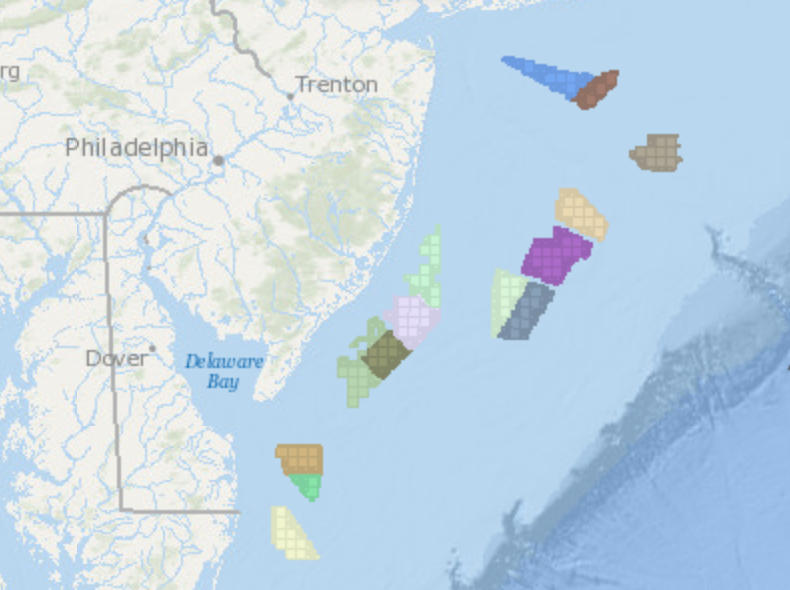New Jersey energy officials moved to open a third round of solicitations from offshore wind energy companies that could double the state’s already aggressive wind power goals.
The New Jersey Board of Public Utilities voted Monday to open applications for between 1.2 gigawatts and 4 GW of capacity, on top of 3.75 GW already in the pipeline set by Gov. Phil Murphy’s administration.
“Today marks a pivotal next step toward accomplishment of our offshore wind development goals,” according to a statement from Murphy, who has talked of building out to 11 GW of potential power offshore – rivaling the goals of neighboring New York State.
“Offshore wind constitutes a crucial component of our journey to 100 percent clean energy by 2035, a benchmark that solidifies our position at the national forefront of climate action,” said Murphy. His administration is building infrastructure initiatives like the New Jersey Wind Port near the mouth of the Delaware River to position New Jersey as a hub for building projects off the Mid-Atlantic coast.
The solicitation comes as the Murphy administration and federal agencies are under fire from offshore wind critics, who contend a series of whale strandings on the state’s beaches require a pause in offshore wind geotechnical surveys using sonar and seafloor drilling.
The latest whale deaths include a whale reported this week on Bethany Beach, N.J. on Delaware Bay, and a humpback at Seaside Park, N.J., that investigators say showed evidence of a fractured skull, likely from a vessel propeller.
The Ocean Wind and Atlantic Shores turbine arrays planned off New Jersey already had local opposition from residents and businesses in beachside towns. The whale deaths since December have energized their effort, and generated publicity from Fox News and other conservative commentators who have picked up the critics’ narrative that survey noise could have disoriented the whales’ sense of hearing.
The National Oceanic and Atmospheric Administration maintains there is no evidence that offshore wind operations have done anything to affect whale strandings, which have been elevated among humpbacks along the East Coast since 2016.
Conservative media coverage has fed a partisan edge to the offshore wind debate. Rep. Jeff Van Drew, R-NJ, whose southern New Jersey coastal district would look out to the planned wind turbine arrays, has a March 16 public hearing planned at the Wildwood, N.J., convention center hall, that could be the first in a series of inquiries by the Republican-controlled House of Representatives into the Biden administration’s offshore wind push.
In announcing their new solicitation, New Jersey state officials say the third round will call on developers to commit more money toward assessing the environmental impacts of wind power.
During the second-round solicitation, Atlantic Shores and Ocean Wind were required to commit $10,000 per megawatt of project-size-awarded capacity, around $26.5 million for both projects, to fund research, according to the Board of Public Utilities.
“The board is recommending that any projects selected in the third solicitation contribute funding to this initiative,” according to the agency announcement. The application window will close June 23, with a decision anticipated by the end of the year.
Environmental groups applauded the BPU vote. Alex Ambrose, an analyst with the group New Jersey Policy Perspective, also took a swipe at offshore wind opponents, noting the connection between some groups and conservative legal foundations who are challenging offshore wind projects in court.
"The opposition to clean energy is incredibly transparent, led by bad faith actors funded by the fossil fuel industry,” Ambrose said in a joint statement with other pro-wind power New Jersey groups. “It is obvious their goals are not to make New Jersey cleaner, safer, or more prepared for the climate crisis; their goals are only to protect an antiquated and dangerous source of energy."
"Hearings are critical. If the federal government and these offshore wind companies have nothing to hide, then prove it,” said Van Drew. “They must prove that the development of these projects will have no effect on the environment, which is hard to believe following the death of over a dozen whales in the Northeast region where surveying is currently taking place.”







